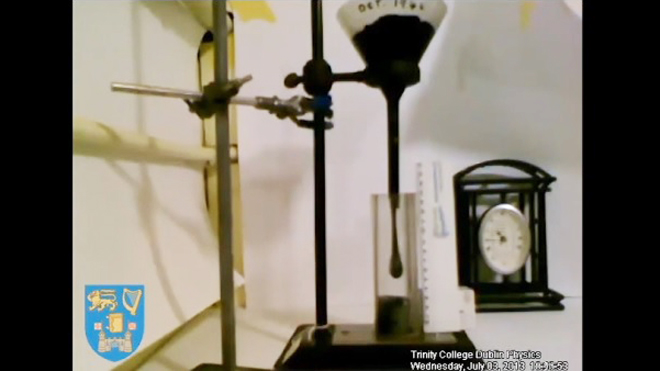- Web
- Humsa
- Videos
- Forum
- Q2A



Scientists have worked out how a deadly new virus which was unknown in humans until last year is able to infect human cells and cause severe, potentially fatal damage to the lungs.
In one of the first detailed studies of the virus - which emerged in the Middle East and has so far infected 15 people worldwide, killing nine of them - Dutch researchers identified a cell surface protein it uses to enter and infect human cells.The finding, published in the journal Nature, came as the World Health Organization (WHO) confirmed the 15th case of the virus, known as novel coronavirus or NCoV, in a male patient in Saudi Arabia who died on March 2.
Other cases have been in Jordan and Qatar, and in patients in Germany and Britain linked to travel in the Middle East.NCoV is from the same family of viruses as those that cause common colds and the one that caused the deadly outbreak of Severe Acute Respiratory Syndrome (SARS) that first emerged in Asia in 2003.The WHO first issued an international alert about it in September after it was identified in a Qatari man in Britain who had recently been in Saudi Arabia.
A study published last month found that NCoV was well adapted to infecting human cells and may be treatable with medicines similar to the ones used for SARS, which killed a tenth of the 8,000 people it infected.In this latest study, led by Bart Haagmans at the Erasmus Medical Center in The Netherlands, researchers set out to find how the virus got into cells - which receptors it used - and then to find out where in the body those receptors were common.
Potential vaccines
"Once you can identify the receptor and you know the distribution of the receptor in the body, then you can get more information on the pathogenesis (the way it infects people) of the virus and the possibility for transmission," Haagmans said in a telephone interview.Researchers identified the key receptor for the disease as a cell surface protein called dipeptidyl peptidase 4 (DPP4).
They also found cells containing DPP4 receptors were common in the lower respiratory tract but not in the upper respiratory tract - giving clues to why the virus causes illness in the lungs rather than in the nose and throat as a cold virus would.The findings should help researchers find ways of developing potential drugs or vaccines to block the DPP4 receptors and prevent infection, Haagmans said.
A few drugs that block DPP4 receptors are already on the market, licensed for use in diabetes, but Haagmans said his team already tried using those to stop the virus in laboratory tests and found they did not work.He said, however, that the team was working with other molecules that might block the receptors and could form the basis for developing a potential vaccine.
Initial analysis by scientists at Britain's Health Protection Agency last year found that NCoV's closest relatives were most probably bat viruses.Yet further work by a research team in Germany suggests NCoV may have come through an intermediary - possibly goats.Haagmans said since DPP4 receptors were also present in other species, including bats, his findings showed it was feasible the virus came from bats. He said the idea that goats may have been an intermediary also looked feasible.
 It was 13 years in the making.
The second-longest running science experiment in history has just yielded its strange result: a sticky, black drop of pitch.
Set up in 1944 at Trinity College Dublin, the experiment is meant to reveal the strange properties of bitumen -- pitch, or asphalt -- which appears solid at room temperature but is in fact flowing ver..... Read more
It was 13 years in the making.
The second-longest running science experiment in history has just yielded its strange result: a sticky, black drop of pitch.
Set up in 1944 at Trinity College Dublin, the experiment is meant to reveal the strange properties of bitumen -- pitch, or asphalt -- which appears solid at room temperature but is in fact flowing ver..... Read more
 A massive instrument circling the globe aboard the International Space Station has provided a first glimpse of what may be mysterious dark matter in the universe, experts said Wednesday.
The elusive nature of dark matter -- which surrounds the galaxy in a near-spherical halo and is believed to make up around a quarter of the universe -- is considered on..... Read more
A massive instrument circling the globe aboard the International Space Station has provided a first glimpse of what may be mysterious dark matter in the universe, experts said Wednesday.
The elusive nature of dark matter -- which surrounds the galaxy in a near-spherical halo and is believed to make up around a quarter of the universe -- is considered on..... Read more
 Just how lucrative has Apple's iPad become? Let's put it this way: if the tablet were spun off into a standalone business, it would be the 11th largest U.S. tech company.
According to a recent report from Bernstein Research analyst Toni Sacconaghi, the iPad line brought in $32 billion in sales last year -- accounting for just over 60% of all tablet ..... Read more
Just how lucrative has Apple's iPad become? Let's put it this way: if the tablet were spun off into a standalone business, it would be the 11th largest U.S. tech company.
According to a recent report from Bernstein Research analyst Toni Sacconaghi, the iPad line brought in $32 billion in sales last year -- accounting for just over 60% of all tablet ..... Read more












 Clean Chit (Faisal Raza Abidi ...
Clean Chit (Faisal Raza Abidi ...  Akhir Kiyon - 16th December 2...
Akhir Kiyon - 16th December 2...  To The Point - 16th December ...
To The Point - 16th December ...  Capital Talk â
Capital Talk â  Kal Tak - 16th December 2013
Kal Tak - 16th December 2013  Bay Laag - 16th December 2013
Bay Laag - 16th December 2013  Kharra Sach - 16th December 2...
Kharra Sach - 16th December 2...  Awaam - 15th December 2013
Awaam - 15th December 2013 





 Gold Miner
Gold Miner  Superbike GP
Superbike GP  Whipsaw Fighter
Whipsaw Fighter  PacMan
PacMan 


